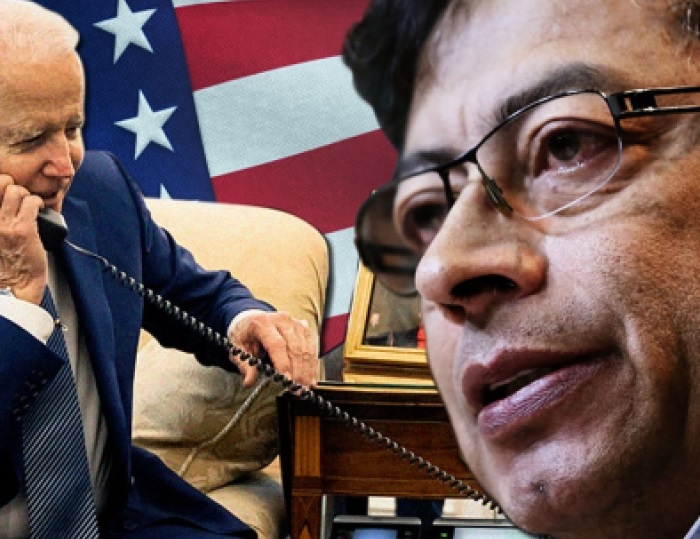RIO DE JANEIRO, BRAZIL – The victory of leftist Gustavo Petro has caused a political earthquake in Colombia, with possible aftershocks in the alliance with the United States, which must seek “common ground” to preserve its relationship with “the cornerstone” of its policy in Latin America, experts estimate.
The election of Petro “could introduce tensions in the relationship” between the two countries, Benjamin Gedan, of the Latin American Program of the Woodrow Wilson International Center for Scholars, commented to AFP.
The United States, whose President Joe Biden described Colombia as a “cornerstone of US policy in Latin America and the Caribbean”, will have to tread a fine line because Petro is eager for change: he rejects the current anti-narcotics policy and asks to renegotiate the Free Trade Agreement with Washington.

The first leftist to win the Colombian presidency is in favor of gradually eliminating oil production, an industry with strong ties to the United States, just when Washington is urging its allies to produce more to alleviate the rise in fuel prices due to the war unleashed after the Russian invasion of Ukraine.
And although the former mayor of Bogota distances himself from the governments of Nicaragua and Venezuela and sympathizes with the “progressivism” of former Brazilian president and electoral candidate Luiz Inácio Lula da Silva and Chilean Gabriel Boric, he has promised to normalize relations with Venezuelan President Nicolás Maduro.
This “undermines US efforts to isolate the regime” of Maduro, whom it does not recognize because it considers his 2018 reelection fraudulent, Gedan says.
Once he takes office on August 7, Petro, a 62-year-old former guerrilla fighter, wants to open the border with Venezuela when Colombia is hosting more than 1.8 million Venezuelan migrants and refugees.
“VERY FRIENDLY”
It is too early to predict whether the seamless alliance that Biden staged with outgoing conservative President Iván Duque, whom he seated at his right hand during the recent Summit of the Americas, will be maintained, but in 200 recently completed years of bilateral relations, the two countries wove ties with deep roots in many areas.
Not only at the level of the presidency and the administration but also between governmental working groups and the private sector.
The bond’s future depends “on the search for points of common interest” and “when they do not coincide with looking for ways to resolve them,” Jason Marczak, senior director of the Atlantic Council’s Adrienne Arsht Center for Latin America, told AFP.
“Of course, the government of Gustavo Petro is going to have different international policies than the current one, but that is the change that the people, that the Colombian people want,” he stresses.
“Very friendly” is the term Petro used to describe the first telephone conversation with Biden, who committed, according to him, to “a more equal relationship.”
“Colombia is hungry for change, the ballots have spoken; now is the time” for the US government “to stand up and play the role of a true ally,” Carolina Jiménez Sandoval, president of the Washington Office on Latin America (WOLA), believes in an article.
And that means, she adds, adjusting its foreign policy with its extra-NATO strategic ally on several fronts.
THE SENDER AND THE SPONGE
First, Washington must be “more generous financially” in its support for the peace agreement signed with the Revolutionary Armed Forces of Colombia (FARC), demobilized in 2016, whose implementation is one of Petro’s priorities and which Biden strongly supported when he was Barack Obama’s vice president.
Jiménez Sandoval also recommends changing the focus on counternarcotics policy. The Biden administration “is already proposing to address this issue with actions that go beyond crop eradication,” and Petro suggests “moving away from aerial herbicide spraying” because it punishes poor coca growers “without actually reducing cocaine supplies,” he explains.
After decades of fighting coca cultivation, Colombia remains the world’s largest cocaine producer, and the United States is the main consumer of the drug.
Perhaps the point on which Biden and Pëtro’s agendas converge most is the fight against climate change.
The Colombian president-elect wants a “dialogue” on the environmental crisis but put on the table the greenhouse gases that the United States emits “like almost no other country” and that the “Amazon rainforest,” the lungs of the world, absorbs like a sponge.
With information from AFP

